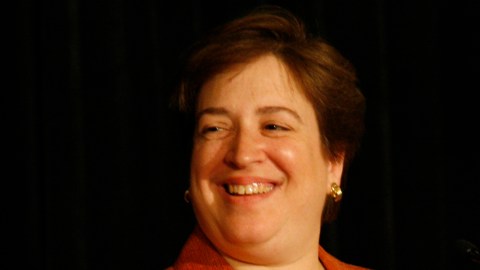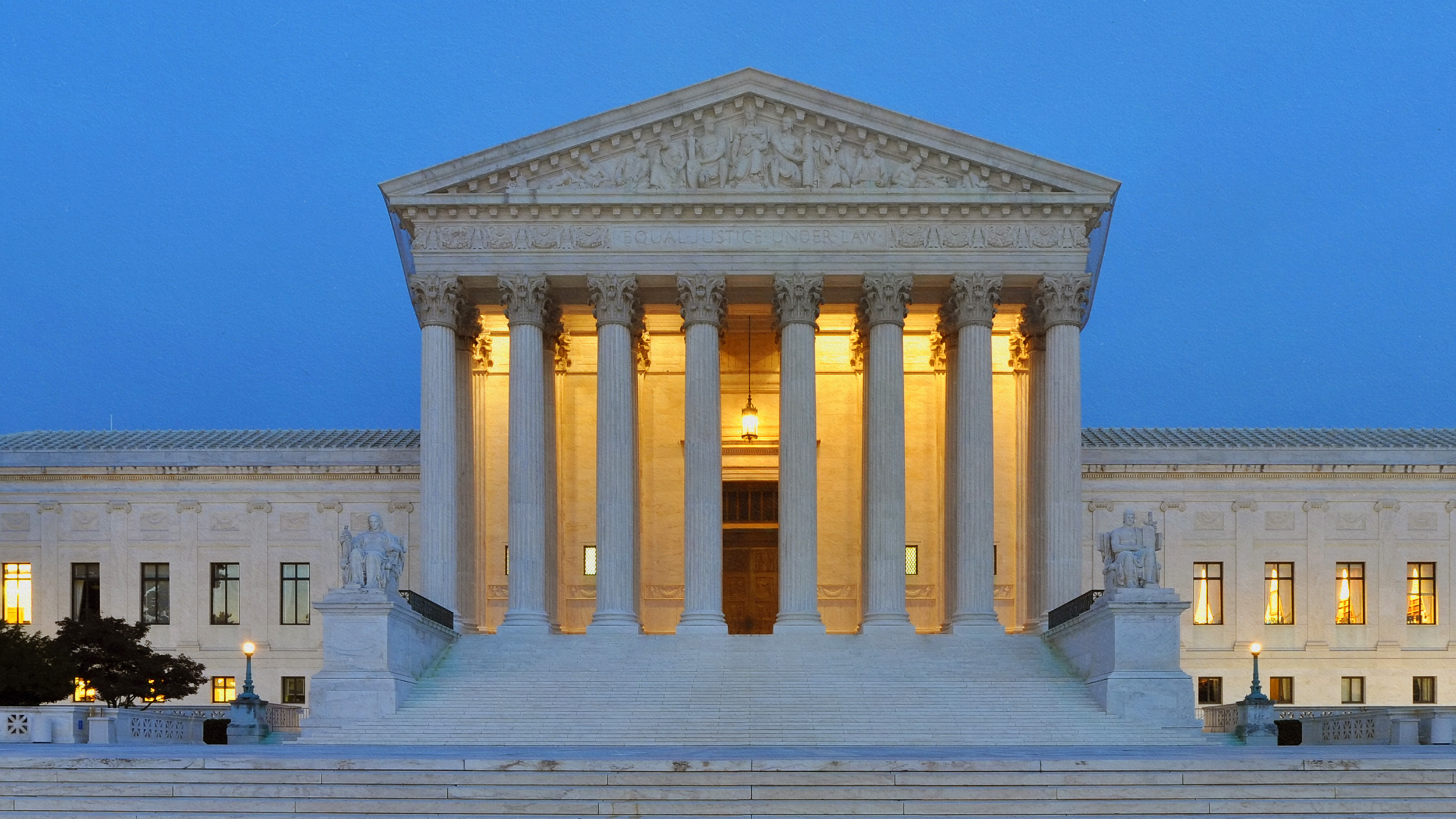The Kagan Conundrum

Solicitor General Elena Kagan, President Obama’s new nominee for the Supreme Court, is by all accounts spectacularly brilliant. She was also, by all accounts, did a fantastic Dean of Harvard Law School. If confirmed she would be the youngest justice on the current court, and just the fourth woman ever appointed. And because she would replace stalwart liberal Justice John Paul Stevens, she would almost certainly move what is already the most conservative court since Franklin Roosevelt’s administration even further to the right.
Republican National Committee Chair Michael Steele has already attacked Kagan for approvingly citing a remark Justice Thurgood Marshall—who Kagan clerked for—made that “the Constitution, as originally drafted and conceived, was ‘defective.'” As wonderful as the Constitution is, this is pretty weak stuff. The defect Marshall and Kagan were referring to is the Constitution’s tacit acceptance of slavery, something Republicans—who are fond of reminding us that they are the party of Lincoln—presumably still oppose.
Kagan’s larger and probably more controversial point was that the role of the courts is “to protect the people who went unprotected by every other organ of government—to safeguard the interests of people who had no other champion.” Steele implies—much as he did with Justice Sotomayor’s suggestion that empathy is a valuable quality in a judge—that Kagan’s remarks show she will let her personal feelings get in the way of a neutral interpretation of the law. But, as Greg Sargent says, Kagan’s point was actually that courts should be the one place where the weak and powerless get an equal hearing, not that the courts should play favorites in any way.
A more serious concern for conservatives is that Kagan fought to keep military recruiters off the Harvard campus, calling the “Don’t Ask, Don’t Tell” policy “a moral injustice of the first order.” So it’s reasonable to think, as Maggie Gallagher does, that “a vote for Kagan is a vote for gay marriage.”
But that’s about the only thing Kagan is on record as believing that would give conservatives pause. The truth is that the conservatives could hardly expect a Democratic president to appoint anyone they would more comfortable with than Kagan. Almost no one expects a serious fight over her confirmation, considering that she has drawn praise from conservative legal heavyweights like Ted Olson, Charles Fried, and Ken Starr, and that seven Republicans voted recently to confirm her appointment to solicitor general. Steele’s attack on Kagan is probably no more than a sop to conservative legal activists rather than a serious attempt to block her confirmation.
Liberals, on the other hand, may have some reason to be nervous. The fact that Kagan has no experience on the bench doesn’t necessarily mean she won’t be a good judge—many distinguished justices had little or no experience on the bench before their appointments. But her lack of judicial track record, combined with a remarkable lack of academic legal writing, make it difficult to know just what kind of a judge she would be. Conservatives have shied away in recent years from anyone whose opinions they didn’t know inside and out, after a number of Republicans appointees—like Justice Stevens himself—turned out to be much more liberal than they realized. That—and not the fact that she was a legal lightweight—is what caused them to drop Harriet Miers’ nomination.
As Paul Campos says, “the only real basis we have for making any judgment about Kagan’s current political beliefs is that she has a lot of liberal friends in high places.” Even Jeffrey Toobin, who has known Kagan since law school and considers her a friend, can’t say just what she believes. Outside of a single letter Nina Totenberg dug up that Kagan signed opposing a law that would have stripped courts of the power to challenge the detention practices at Guantanamo, Kagan doesn’t seem to have had anything to say about any of the serious constitutional questions raised by the prosecution of the “war on terror.” Her lack of a legal paper trail may her nomination hard to oppose, but it’s disturbing that she stayed silent about issues where lives and the future of our country were at stake. Glenn Greenwald goes so far as to suggest she’s just “a blank slate, institution-loyal, seemingly principle-free careerist who spent the last 15 months as the Obama administration’s lawyer vigorously defending every one of his assertions of extremely broad executive authority.”
President Obama reportedly hopes that Kagan can be the progressive intellectual equal of Chief Justice John Roberts. He’s betting that the ability she showed at Harvard to get along with her conservative colleagues will allow to build consensus on the court and—most importantly—to win over Justice Anthony Kennedy’s crucial swing vote. Obama probably also hopes to avoid a contentious nomination fight with the midterm elections approaching. Kagan seems in any case to be a lawyer very much in Obama’s mold, a careful centrist who will support his expansive view of executive power. But what she probably won’t be, is the clear, principled liberal voice on the court that Justice Stevens has been.





